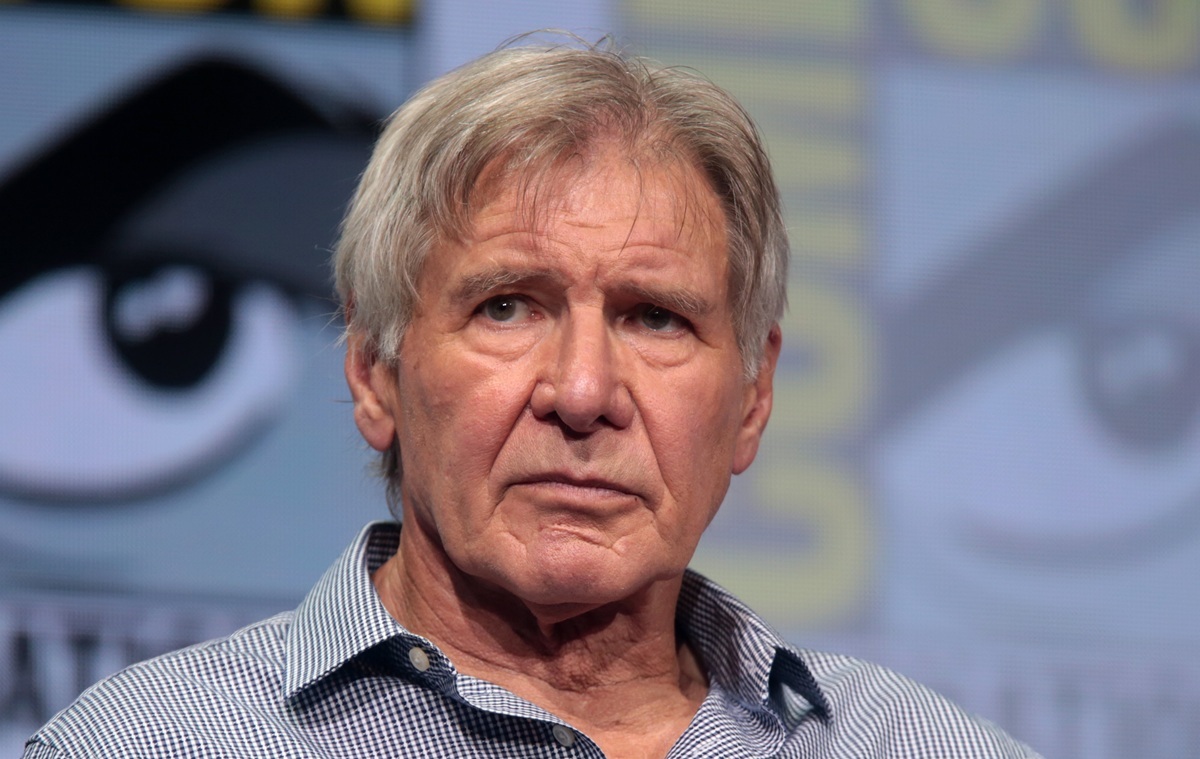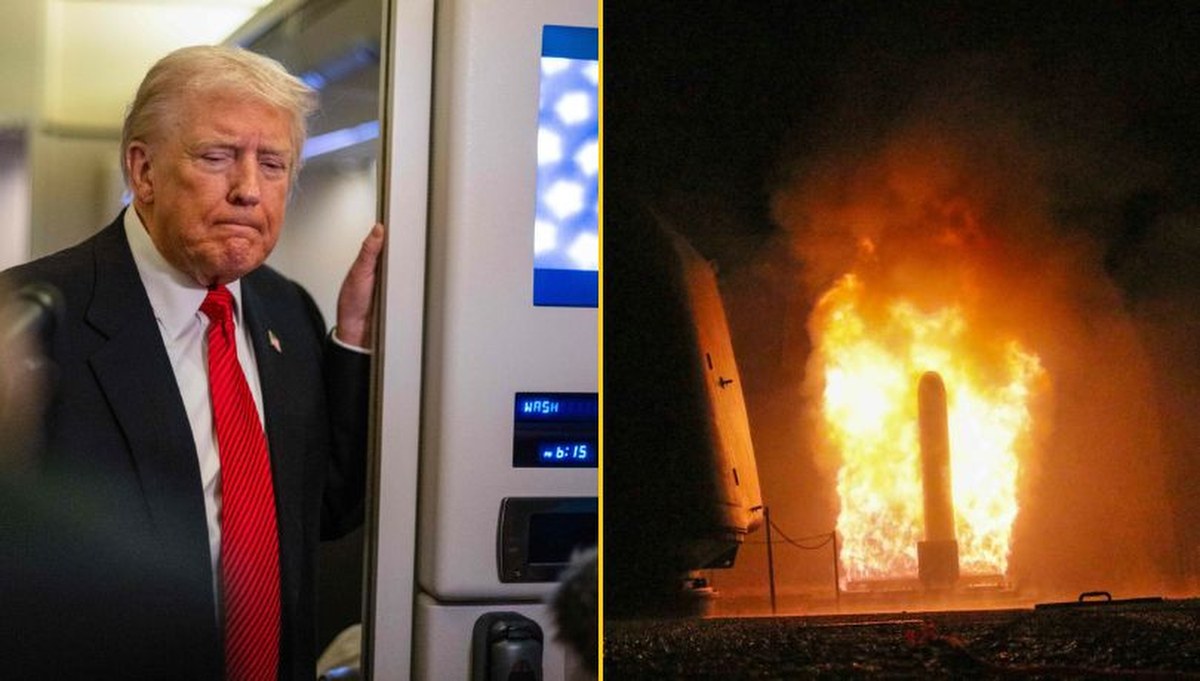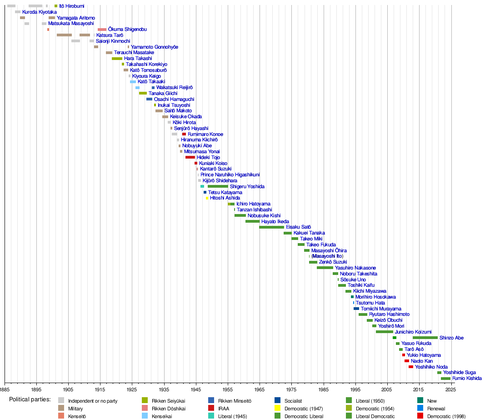
Japan’s PM Kishida Announces Resignation Amid Scandals, Opening Door To Political Chaos
After the late Shinzo Abe valiantly tried to break Japan’s dismal tradition of having Prime Ministers who last on average about a year – before quitting and eventually getting assassinated – it appears that Japan is back to its own ungovernable self.
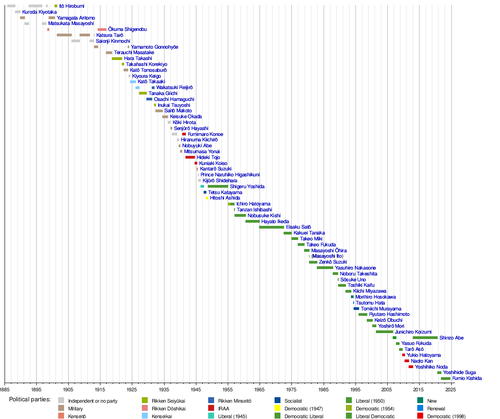
On Wednesday morning, Japan’s Prime Minister Fumio Kishida surprised markets when he said he would step down as leader of the ruling Liberal Democratic party in September and effectively end his tenure as the country’s prime minister, ending months of speculation over his ability to survive scandal and rising living costs.
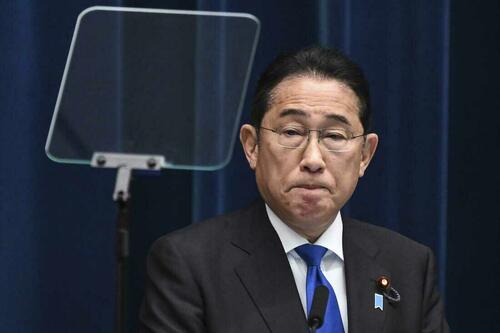 Japan’s Prime Minister Fumio Kishida speaks during a press conference at his office in Tokyo as he announced he will not run in the upcoming party leadership vote in September, on Wednesday
Japan’s Prime Minister Fumio Kishida speaks during a press conference at his office in Tokyo as he announced he will not run in the upcoming party leadership vote in September, on WednesdayAt a press conference on Wednesday, Kishida said he would not seek re-election at next month’s internal poll for the LDP presidency, which in effect grants the holder the position of Japanese prime minister.
“Japan continues to face tough situations at home and abroad. It is extremely important that we tackle these issues with a firm hand,” Kishida said. “The first and clearest step to show that the LDP is changing is for me to step down.”
Kishida said his decision was based on the need to restore trust in politics, and that an ideal successor would be reform-minded.
“Trust in politics and trust from the people is critical,” he told reporters. “It is only by regaining the understanding and trust of the general public that we can move forward, and this is why the LDP must change.”
In short, Kishida wants to get the hell out of Dodge before all hell breaks loose again.
The unexpected shake-up comes at a key moment for Japan, which as the FT reports, has taken on a more muscular defense role in the Pacific and deepened security co-operation with the US in the face of a rising China. The country’s economy also began to emerge from a decades-long campaign against deflation and low growth, while its equity markets have become a favored destination for investors seeking an alternative to China amid rising geopolitical risks.
But Kishida’s three-year premiership was dogged by low approval ratings, caused in large part by a political funding scandal that forced him to sack four cabinet ministers in 2023. In February, a poll by the Mainichi newspaper found that only 14% of voters approved of his administration’s performance, far below the 30% level that has felled previous Japanese prime ministers. The recent transitory surge in inflation – it’s transitory because Japan has the highest debt load of any country in the world at over 400% of total debt including government and corporate – did not help Kishida’s approval either.
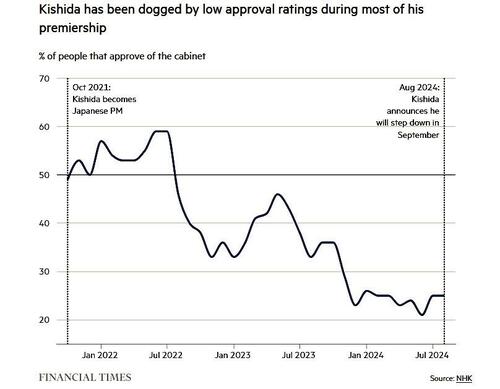
Political analysts have ascribed Kishida’s survival to the weakness of Japan’s opposition parties and a dearth of serious challengers within the LDP.
As the FT notes, Kishida’s decision came as a surprise within the LDP, where very senior figures had firmly believed that the prime minister intended to stand in the leadership election, according to several people close to the cabinet.
By pulling out of the leadership election, which is expected to be held around September 20, Kishida, 67, opens the way for multiple candidates to compete for the position. Speculation among political analysts on his most likely successor has centred on former trade minister Toshimitsu Motegi, 68, former defense minister Shigeru Ishiba, 67, and former foreign minister Taro Kono, 61, all career politicians.
“It is important to show a new face of the LDP in this leadership race,” Kishida said.
Masatoshi Honda, a political analyst and academic, said the depth of the LDP’s woes meant the leadership contest would attract candidates who under normal circumstances would not be seen as potential contenders. But public dissatisfaction with the ruling party went well beyond its top leadership. “Whoever wins, it will be very difficult to revive support for the LDP,” Honda said. One possible younger contender is Takayuki Kobayashi, 49, a graduate of the Harvard Kennedy School, who is credited with showing a steady hand as economic security minister from 2021-22.
Whoever is elected LDP president can expect to lead the party into a general election that must be held by the end of October 2025.
Business executives said one critical question was whether the next LDP leader would be experienced and tough enough to deal with international challenges, including an increasingly assertive China and the possible re-election of Donald Trump as US president.
Kishida, who previously served as foreign minister, came to power in October 2021 with a promise of establishing a “New Capitalism”. His initial failure to fully explain his plans for wealth redistribution resulted in a rapid collapse in the Tokyo stock market that became known as the “Kishida Shock”. Ironically, his tenure ended with another shock, this time the result of the logical rate hike meant to contain Japan’s runaway inflation, which sent stocks plummeting, and forced the BOJ to quickly backtrack effectively promising no more rate hikes.
That said, Kishida’s three-year term included a number of modest achievements that had eluded his predecessors, including a landmark increase in Japanese defence spending in 2022 that would, in stages, raise the military budget from about 1% of gross domestic product to roughly 2% over five years.
Kishida’s efforts to convince corporate Japan to raise wages also bore fruit. This year’s shunto wage negotiations in March secured the largest pay increase since 1991 for workers at large companies. Alas, that has since led to the highest inflation in Japan in generations, and forced the BOJ to hike rates, jeopardizing the stability of the Japanese bond market, the world’s biggest financial Frankenstein monster, where the BOJ owns more than half of all JGBs.
US ambassador to Japan Rahm Emanuel on Wednesday hailed the departing prime minister as “a true friend” of Washington.
“Kishida worked with President Biden to open a new chapter in the US-Japan relationship, which went from alliance protection to alliance projection,” said Emanuel.
Tyler Durden
Wed, 08/14/2024 – 09:25

 1 rok temu
1 rok temu

